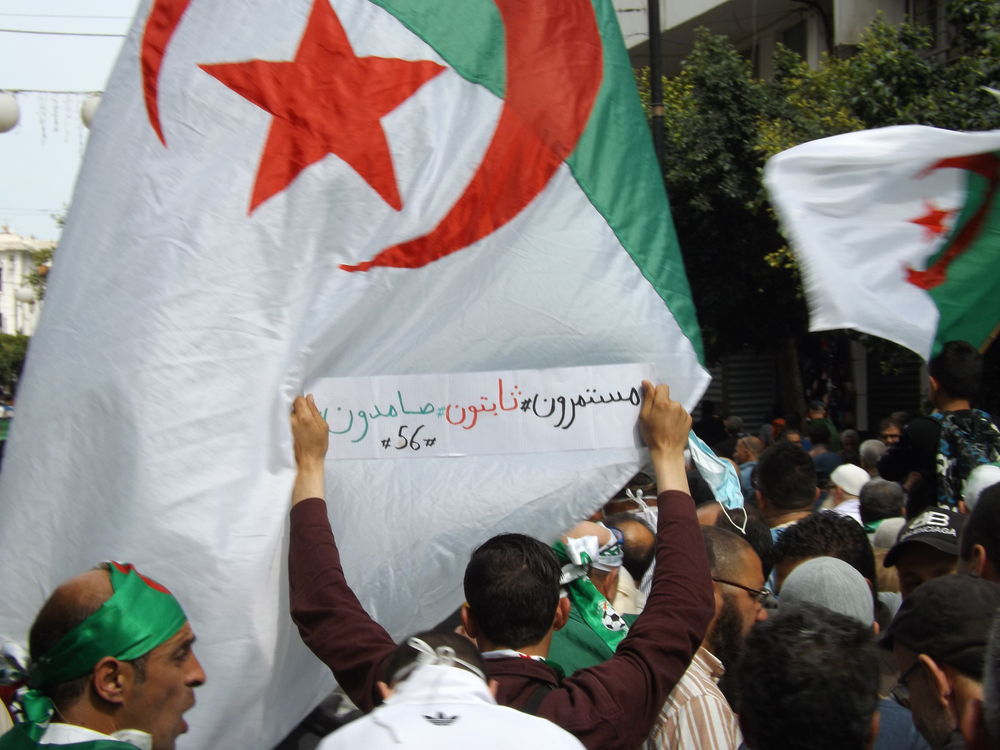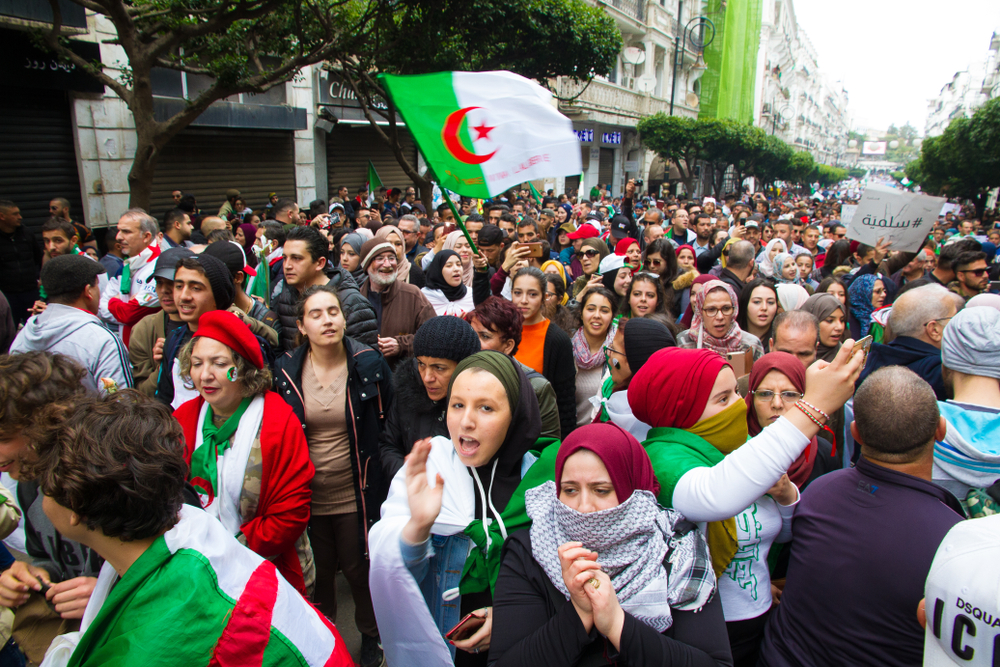What Prospects for Democracy and Human Rights in Algeria? Interview with Luis Martinez

Luis Martinez answers our questions on the publication of a report entitled “Prospects for Democracy and Human Rights in Algeria” presenting the results of two years of collective work on the issue of democracy and human rights in Algeria.
Can you give us a quick introduction to the project and the team behind it? How long have you been working together and what issues have you been exploring?
This report is a summary of the main findings from unpublished research papers that were discussed in a series of closed webinars held during 2020. The seminars were jointly organised by EuroMed Rights, Dignity, the Danish Institute for Human Rights, and the Euro-Mediterranean Foundation for the Support of Human Rights Defenders. It is this same grouping that has published the report we present here.
This initiative, which was launched in 2019 and brings together around fifty people, is an attempt by researchers, of Algerian and European origin, as well as human rights defenders and rights and democracy organisations working in Algeria, to understand the emergence of the Hirak movement in the spring of 2019 and the difficulties it encountered in its attempts to overturn the army’s strategy.
The final webinar of this project provided an opportunity for critical exchanges with representatives of many Algerian civil society organisations involved in the Hirak movement. In this respect, the results of this research are particularly stimulating and rich. In fact, we are continuing the research beyond this report with a forthcoming edited volume.
The report you are publishing presents the main results of the research carried out in the framework of this collective project, around the issue of democracy and human rights in Algeria. What are the main results of this research?
The key argument of the report we are publishing is that the “revolution” is unlikely to lead to the achievement of a democratic transition and respect for human rights in Algeria. Indeed, the report shows that for a successful and sustainable democratic transition, the Hirak movement has everything to gain from developing a long-term strategy and should aspire to transform the regime, not demand immediate radical change. The Hirak movement should also “de-radicalise” its political agenda, transform itself into a reformist political actor, and engage in elections. The objective of civil society actors is to achieve the gradual, peaceful, and negotiated deconstruction of the Algerian authoritarian regime, to build a climate of trust over time that offers the army assurances of the preservation of its interests and privileges. From this perspective, the report concludes that the democratisation of Algeria can only be achieved with the consent of the military. However, if this transition period is presented as a “revolution”, “a new independence”, it will only reinforce the army’s already numerous concerns. Indeed, pro-democracy activists would benefit from adopting a strategy aimed at persuading the military to agree to structural reforms. Today, in Algeria, national civil society actors are excluded from political institutions. One of the key demands expressed by these actors is that the international community support them in their struggle for integration into Algeria’s major public institutions and transformation from within. The Hirak movement expresses a deep sense of anger and exasperation that civil society actors have managed to channel so far. Indeed, it is an important resource in the negotiation with the army, but civil society actors now need to take the Hirak movement out of the street (and rid it of its radical slogans—“get them all out”, “murderous power”—which are counterproductive and end up stiffening even further the army’s position) and bring it into the process of regime transformation.

Demonstration in Algiers, Friday 13 March 2020, before lockdown. Copyright : Shutterstock
What have been the consequences of the COVID crisis and the correlated closure of Algerian borders on democracy and human rights in the country?
The health crisis has stopped the Hirak movement’s dynamic. The halt to the demonstrations allowed the Algerian authorities to gradually regain control of the public space and communication. In fact, the movement was given less and less space in the national and international media. Admittedly, during this period, the hospitalisation of President Tebboune in Germany plunged Algeria back under the spectre of a sick president being treated abroad, but his return to the country was accompanied by a desire to impose the regime’s political agenda and therefore to repress the Hirak movement.
On the eve of the anticipated legislative elections on 12 June, this repression is very harsh and shows that the army rejects the existence of and the actions undertaken by the Hirak movement in its current form. Many international human rights organisations are denouncing the government’s repressive strategy and some are worried about the future of human rights in Algeria, if the country drifts toward the model of Sissi’s Egypt, for example.

Demonstration in Algiers on 8 Mars 2019, international women's day. Copyright : Shutterstock
The Algerian legislative elections are scheduled to take place on 12 June 2021 earlier than initially planned. Can you remind us why these elections, originally scheduled for 2022, were brought forward and what is at stake?
After the removal of President Abdelaziz Bouteflika from office in 2019, the army imposed its political agenda: early presidential elections, a referendum on the Constitution, and, on Saturday 12 June 2021, early legislative elections followed by local elections in September 2021. It is clearly a question of rebuilding a formal political scene that allows the army to move back into the shadows. Like in the previous elections, a very low turnout is expected; this was already the case under Bouteflika. With the calls for a boycott of the election by the Hirak movement and the opposition parties as well as the deep scepticism of the voters regarding the capacity of the parliament to legislate for the general interest, these elections seem to have little interest, except to bring to the fore the political parties, in particular the Islamists, and the personalities still available to join future government coalitions. In fact, these elections are there to demonstrate that it is the army that decides the political agenda and not the Hirak movement...
The report is available in French and in English.
Interview by Miriam Périer.
Cover: Demonstration in Algiers on 13 March 2020. Last Friday March before lockdown. "Persistent, determined, resilient". Copyright: Shutterstock










